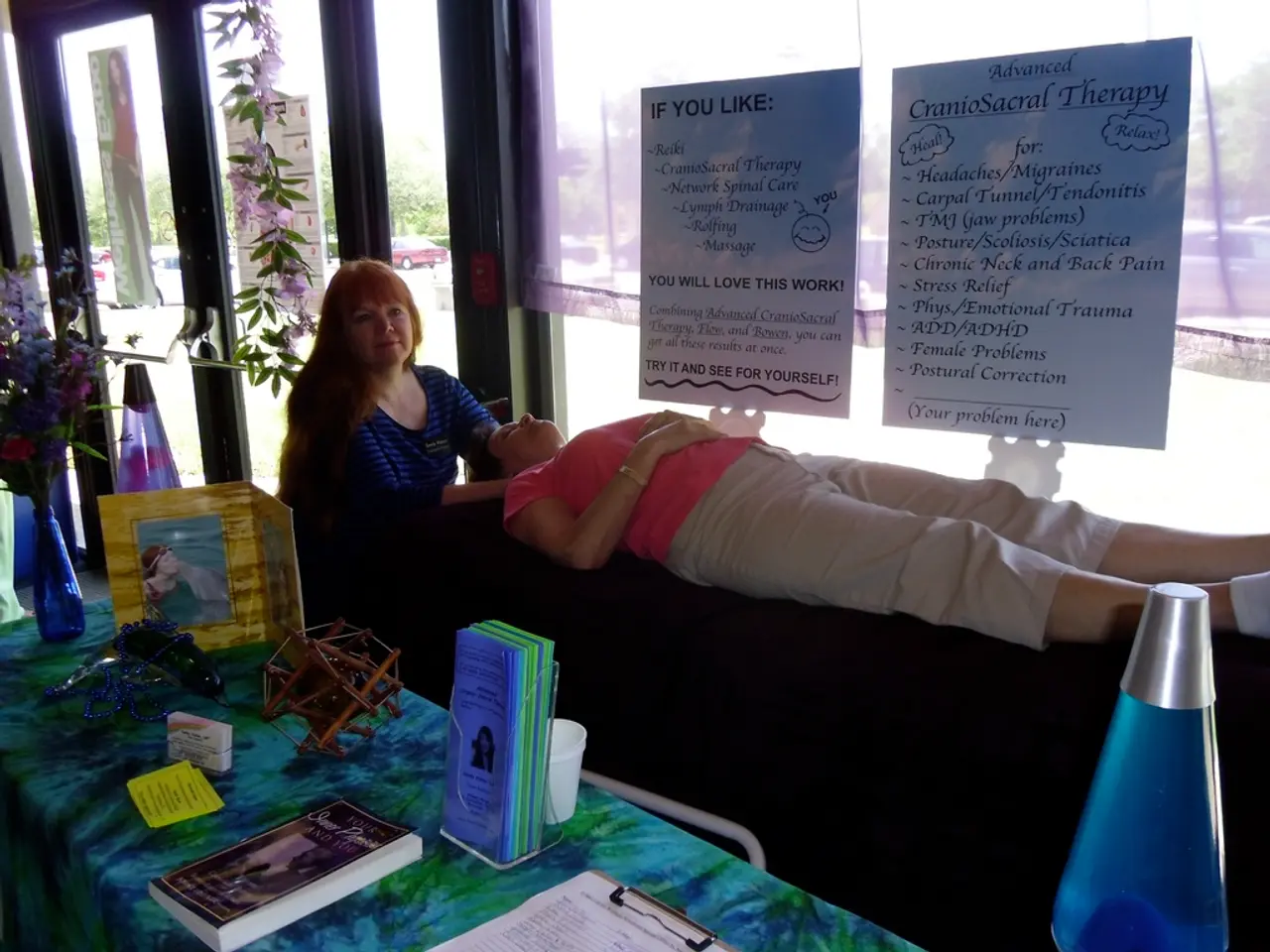Impact of Hysterectomy on Emotions: Grasping and Managing Depression Afterward
Women undergoing hysterectomy may experience emotional impacts such as mood swings, irritability, anxiety, and depressive symptoms. These can significantly affect their relationships and social interactions, often due to hormonal changes following the surgery[1].
Common symptoms of post-hysterectomy depression include persistent sadness, loss of interest in previously enjoyed activities, changes in appetite or sleep patterns, fatigue, difficulty concentrating, and feelings of worthlessness or guilt[2]. If these symptoms persist for more than two weeks or significantly impact daily life, it's crucial to seek professional help.
Coping strategies for managing depression after hysterectomy involve a combination of medical treatment, psychological support, lifestyle changes, and social support networks.
Seeking medical guidance is crucial. Consulting healthcare providers to manage hormonal imbalances or psychological symptoms is crucial. Hormone replacement therapy (HRT) may be considered to alleviate some symptoms if ovaries are removed[3]. Psychotherapy and counseling approaches, such as cognitive-behavioral therapy (CBT) or interpersonal therapy, can help women develop coping skills, process their emotions, and adjust to life changes following hysterectomy[4].
Lifestyle modifications, such as improving sleep hygiene, engaging in regular physical activity, and stress management techniques like mindfulness or relaxation exercises, can reduce symptoms of depression and anxiety[1]. Connecting with support groups specifically for women who have undergone hysterectomies can provide shared experiences and emotional support, mitigating feelings of isolation[1].
Rebuilding self-identity and embracing life post-hysterectomy is an important aspect of long-term recovery. This may involve exploring new interests, redefining personal goals, and finding ways to express femininity and sexuality that are not tied to reproductive organs[5].
The emotional impact after hysterectomy shares similarities with menopausal mood disturbances since hormonal fluctuations and loss of reproductive organs affect brain chemistry and mood regulation[3]. Therefore, it is recommended for women experiencing depression post-hysterectomy to communicate openly with their healthcare providers to tailor an approach that addresses both physical and emotional health comprehensively.
Long-term recovery from hysterectomy also involves monitoring physical health over time through regular check-ups with healthcare providers. Certain factors may increase the risk of developing depression after hysterectomy, including a history of depression or other mental health disorders, lack of social support, unexpected complications from the surgery, and pre-existing relationship or financial stressors[2].
Physical recovery from hysterectomy can influence mental health, with pain, discomfort, and limitations on daily activities contributing to feelings of frustration, helplessness, and low mood. Hysterectomy is a common surgical procedure that can lead to depression in up to 30% of patients post-surgery[6].
Depression following hysterectomy is linked to both physiological and psychological factors. Loss or grief following the surgery, particularly if it results in the end of fertility, can contribute to depression[7]. Complementary and alternative therapies, like acupuncture, massage therapy, or herbal supplements, may be part of a holistic treatment approach for post-hysterectomy depression, but should be discussed with a healthcare provider first.
For those interested in learning more about depression related to other medical conditions or surgeries, various resources are available[8]. Success stories and inspirational accounts from other women who have undergone hysterectomy can provide hope and encouragement. Maintaining long-term mental health after hysterectomy involves ongoing self-care, emotional well-being attention, and regular check-ups with healthcare providers.
- Understanding the impact of hysterectomy on mental health, it's necessary to acknowledge the connection between hormonal changes and the development of anxiety, depression, and mood swings.
- Psychology plays a significant role in managing depression after hysterectomy, with therapies like cognitive-behavioral therapy (CBT) and interpersonal therapy helping women process emotions and cope with life changes.
- Self-care is essential in the recovery process following hysterectomy, and this can involve improving sleep hygiene, engaging in regular physical activity, and practicing stress management techniques.
- Womens' health encompasses not only physical health but also mental health, and discussing any concerning symptoms with healthcare providers is crucial for comprehensive treatment.
- In the quest for long-term recovery and mental health maintenance post-hysterectomy, it's important to explore new interests, redefine personal goals, and find ways to express femininity that are not solely tied to reproductive organs.




